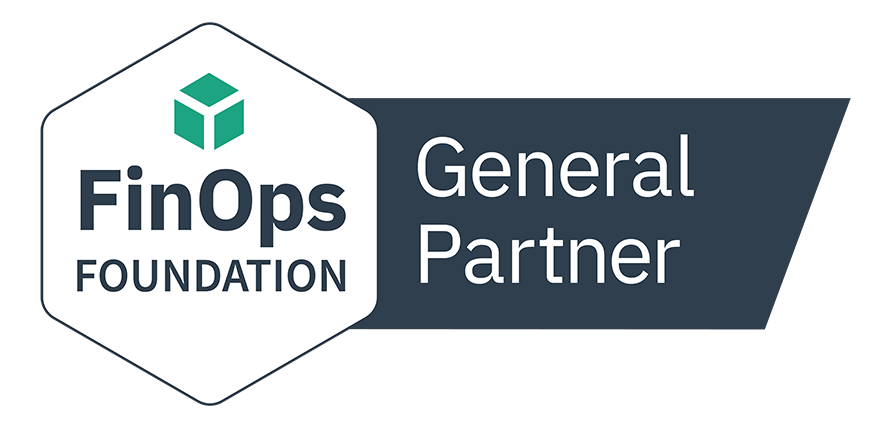“Pepperdata has always had what I consider to be the richest set of performance data of any cloud data observability product.”
Hey, Kirk. Let’s start at the beginning. How did your journey in the IT industry begin?

I was an Intelligence Analyst in the US Air Force. We used a lot of high-end systems to accomplish what we were doing. I became sort of the “before you call IT, call Kirk” guy. Then, after the military, I decided just to focus on IT as a career. From there, I spent time as a defense contractor, and then I spent a number of years at American Express and in IBM’s financial services space. My primary client with IBM was also American Express (AmEx).
That’s a cool career arc. What did you do for AmEx?
My work centered around very large distributed systems, systems administration, systems architecture, storage administration, network administration, those sorts of things. It’s all the things you need to be able to move bits around and crunch data on a large scale. Because before it was big data, it was just sort of high-performance computing distributed systems; basically, how do you get multiple computers to work on a single job? I spent over a decade with the technology division of AmEx.
Then, after AmEx, I moved to California to take a job with Jabil who was launching a division focused on creating and selling big data appliances. They had very large clients. A lot of cloud vendors bought machines from this company, and I was brought in as a design and automation architect.
That was fun while it lasted. But no one bought big data appliances, so it ramped up quickly, but died quickly, as well. I spent about 19 months there before I saw the writing on the wall and realized I was in a sales division that wasn’t selling anything! So I started looking around. And by that point, I was in the blessed position to be able to choose from a few different positions.
And this is when you found Pepperdata, right?
That’s right. It became a high priority for me to find something that I thought would actually be useful, especially after that last experience of making a bunch of things that people didn't buy. Pepperdata ticked off all the boxes in that regard.
At that point, I talked to Sean and Chad, the co-founders, and I also did a bunch of reading, watching YouTube videos, and learning whatever I could find about Pepperdata.
And I realized that the big data performance monitoring technology was something I would have loved to have had in my previous roles, as I was managing these systems and trying to keep the lights on. That's really what brought me in the door.
So you discovered Pepperdata, learned about it, and realized how useful it could have been in your previous work?
That’s right. And from then on, I was glad to be working with technology that I knew could help people. That's sort of been the story from day one: I know this stuff. I know it helps people, and that we need to get it in front of people and convince them.
That’s really cool. What was your role at Pepperdata at the beginning?
Well, it’s been about eight years now since I began working at Pepperdata. My job, day one, was to learn how to host demos and perform the Proof of Value process as fast as I could. Our process starts with a demo, followed by the sessions where we help people understand what Pepperdata is, how to use it, what the value is. Then you ask them to become a customer. When I had gotten about 40 percent up to speed, they went, “Alright, now you're going to do a demo for the whole company. And the day after that, you're going to do a demo for a customer because we need you to jump in.”
It was basically trial by fire, but I managed to develop my own approach. What I did was try to build some automation around the steps to install the software. How can I carry out these steps more efficiently? How can I get more comfortable with the problems that I might see on the way into these customer engagements? And how can I get to a point where I could confidently get on the phone with folks and install the software and prove the value? That sort of thing.
It was basically trial by fire, but I managed to develop my own approach. What I did was try to build some automation around the steps to install the software. How can I carry out these steps more efficiently? How can I get more comfortable with the problems that I might see on the way into these customer engagements? And how can I get to a point where I could confidently get on the phone with folks and install the software and prove the value? That sort of thing.
How does that differ from your day-to-day work now?
The day-to-day role has morphed a bit. So, one of the things that I really like about Pepperdata that I hadn't experienced before is that I get to talk to folks from different fields, like marketing and engineering. Often when you're in a very large organization, you don't get to talk to those people. You just get the product after it's fully baked, and you just run it with what you've got.
But now, I interface with both the marketing team and the product management team. With marketing, we get to work on things like messaging: why we're saying what we're saying, and how we say it. For product management, I get to tell the team, “Hey, I talked to this customer, and he said it would be great if we had a button here that lets them do X.” And then I talk to Jeremy Hay, our lead guy on the UI side, we discuss it and, if it makes sense, we do it.
I get to be involved in the areas that I'm interested in, which is pretty much the whole thing as Pepperdata exists today. It's great to have a hand in what the product is becoming.
What do you consider as the most unique aspect of the Pepperdata product?
Pepperdata has always had what I consider to be the richest set of performance data of any cloud data observability product. Pepperdata collects and correlates hundreds of real-time operational metrics, including host-level CPU, RAM, disk I/O, and network metrics, as well as job, task, queue, workflow, and user info. And we aggregate all that data and use it to inform Capacity Optimizer's decision making and to power the graphs and insight within Pepperdata's observability dashboard.
Last question: The top two pain points that the market has, especially in the cloud, are complexity and unexpected costs. Do you think Pepperdata is uniquely positioned to help with those challenges?
Yes. Part of the thing that allows us to work well in that space is the underlying approach of collecting everything first. That allows us to be pretty flexible.
So a client might say, “I'm going to use Cloudera in my data center, but I'm going to use a little bit of Snowflake in the cloud. And I'm going to use a little bit of EMR here, a bit of Google Data proc there, and a little bit of Microsoft over here.”
Since we’re an independent third-party solution, we can say, “Alright, I can monitor and see the performance data for all of those elements and pull it all back so that your chargeback report is still comprehensive. You don't need to get Amazon's, or Microsoft’s, or Google’s chargeback report and try to make sense of that. We can do that for you. And we can deliver cost-cutting results for you, saving you 30 percent or more in your managed cloud environment, like Amazon EMR.” That’s because we sit a level above all of those things. We are, for all intents and purposes, the umbrella cloud cost optimization solution.
The views expressed on this blog are those of the author and do not necessarily reflect the views of Pepperdata. Any solutions offered by the author are for illustration purposes only and are not part of the commercial solutions or support offered by Pepperdata.



